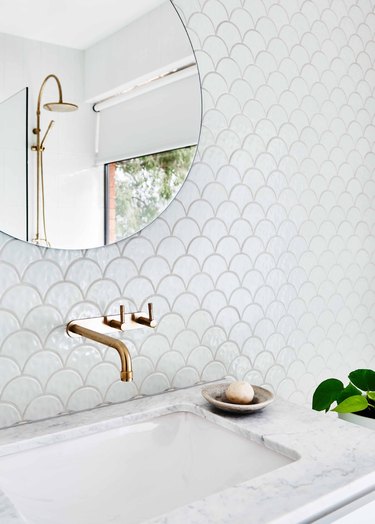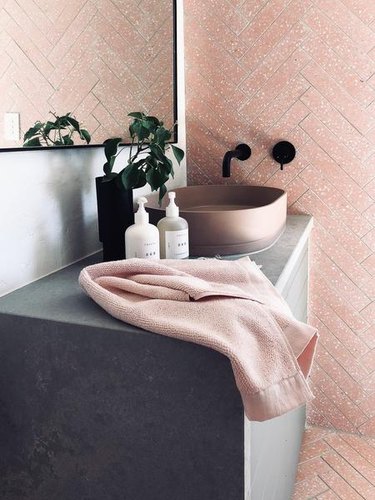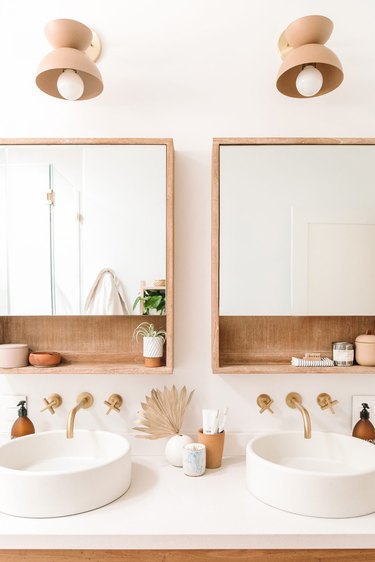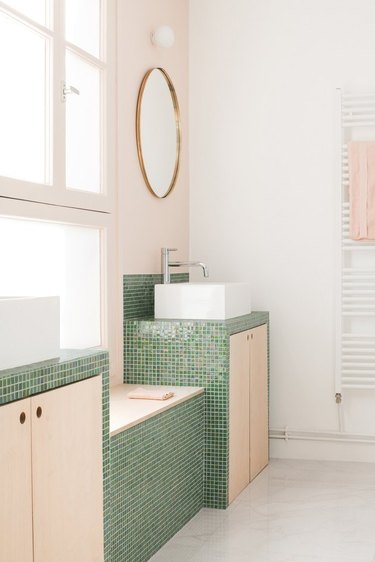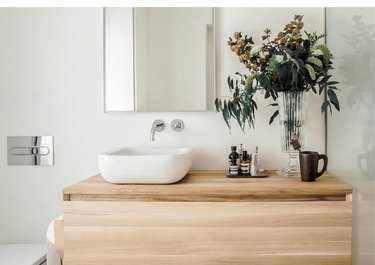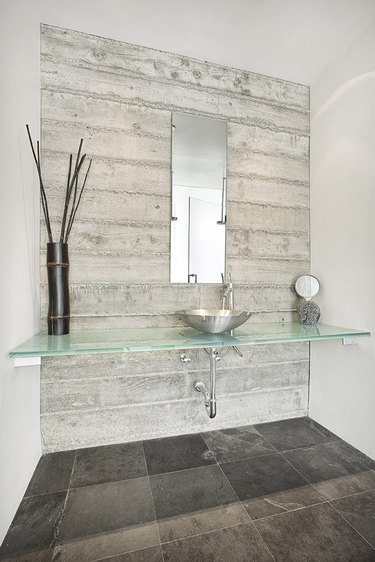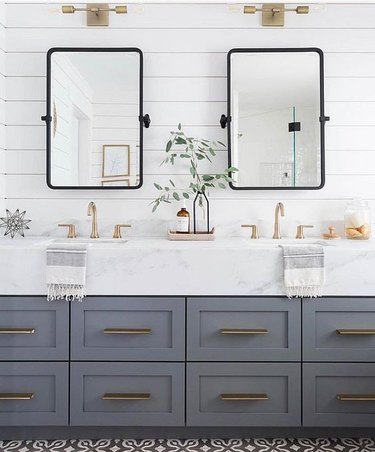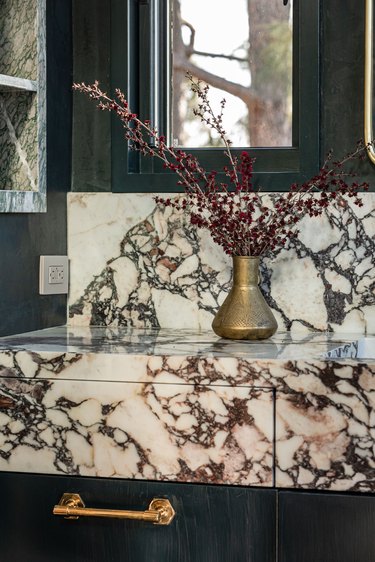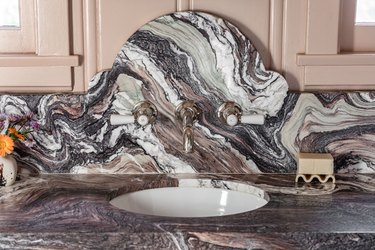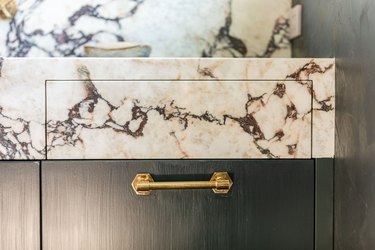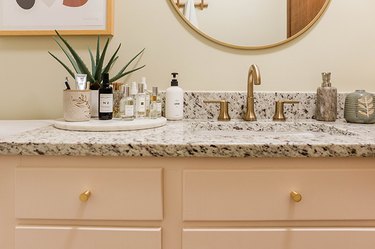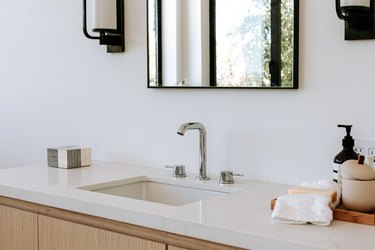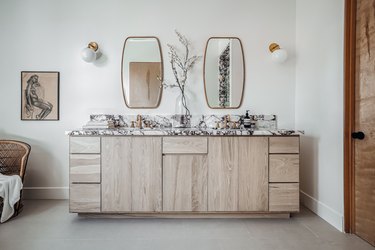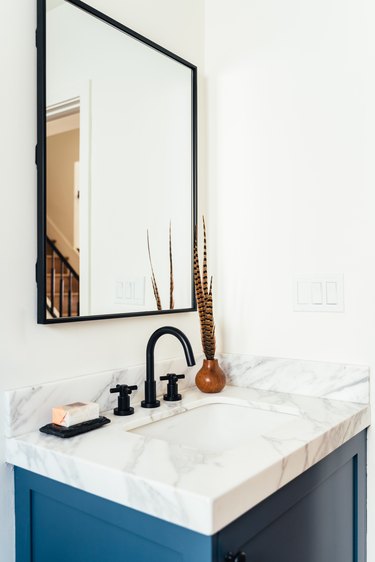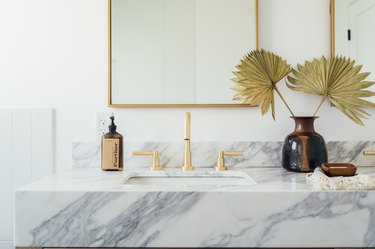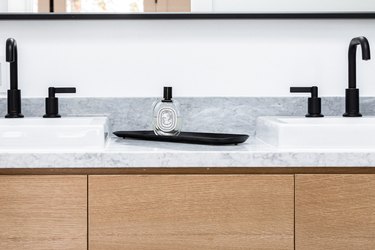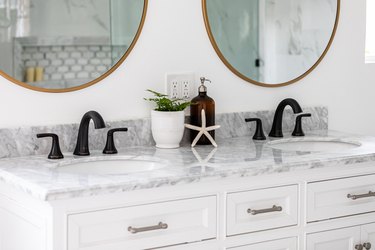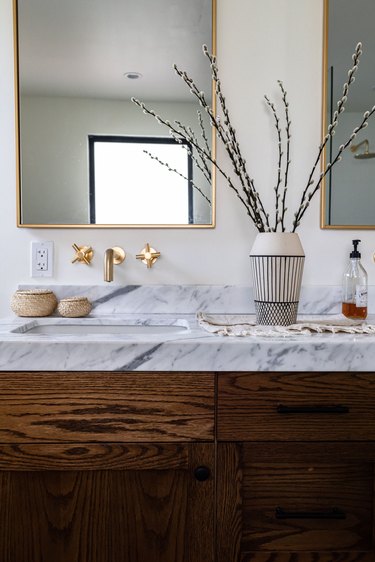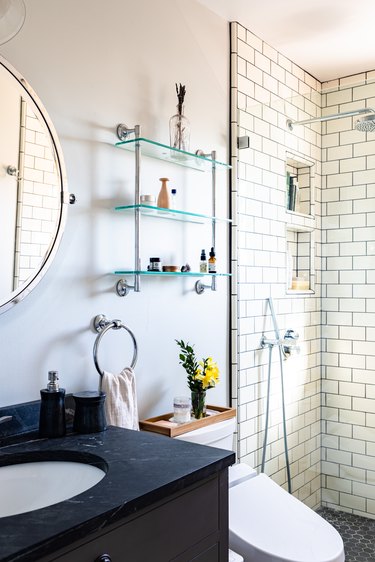Remodeling your bathroom is no easy feat, especially when there are hundreds of options out there to choose from. It needs to be long-lasting, timeless in style, and beautiful, too. The biggest question is, where do you even start? Well, since you asked, we recommend beginning with one of our all-time favorite features: the bathroom countertop.
Introduction to Bathroom Countertops
Bathroom countertops are an ideal way to add a dash of personality to your space. While they need to be functional and practical (and capable of holding those all important self-care essentials, like your toothbrush), they can also make or break the aesthetic, so it's important to choose wisely. From natural stone to show-stopping onyx, there are a number of stunning materials to choose from, and that's before we've even started discussing finishes. The right bathroom countertop idea can add elegance, a hint of drama, texture, color, and might even be a statement feature in your steamy oasis. Excited to learn more? Here is a handy guide to help you familiarize yourself with the different bathroom countertop materials available, and the pros and cons of each.
Concrete Bathroom Countertops
Pros: Not only are concrete bathroom countertops super design-forward and edgy in style (see the rosy refuge above by Norsu), they're strong and durable, too. They're relatively cheap to buy and install; you could even try your luck at making your own if you're DIY savvy.
Cons: Concrete isn't indestructible. This material runs the risk of small hairline fractures or cracks as well as scratches, although repair is fairly easy. It's also susceptible to stains, even with a sealant, so you'll need to embrace the marks and natural patina if the industrial look is your dream.
Quartz Bathroom Countertops
Pros: Quartz countertops are strong and stable like granite but have the added benefit of being more flexible and are less likely to chip or crack. Quartz is nonporous and does not require any sealing to make it completely stain-resistant. Easy, breezy and beautiful to boot.
Cons: Quartz can discolor over time when exposed to direct sunlight, so you need to be careful with positioning. Seams will be visible with this material, so take note if you're using it for a larger surface area, and it's worth noting that it's not heat-resistant.
Tile Bathroom Countertops
Pros: Tile bathroom countertops are one of the most customizable surface materials around. The supplier's catalogue is your oyster. Tile is available in a wide selection of styles, colors, patterns, and textures so it's easy to make something completely unique and your own.
Cons: Tile bathroom countertops are prone to chips and scratches and therefore not ideal for high traffic areas. You'll need to clean them regularly to avoid any discoloration as well as seal them yearly to keep the grout mold- and mildew-free.
Wood Bathroom Countertops
Pros: Traditional wood bathroom countertops are the perfect addition to a spa-like sanctuary. Available in many neutral grains and finishes, you can customize yours with wood stain or lacquer. Or, if you're looking for something rustic and eco-friendly, you can use a piece of reclaimed wood as your surface and help the planet as you clean.
Cons: Wood countertops require professional sealing to keep them looking good, and even then, they are still prone to water damage, scratches, and chips.
Glass Bathroom Countertops
Pros: While a little on the rare side, glass bathroom countertops can make for a modern and functional addition to your space. It's an eye-catching material and customized to your preferences, plus, these countertops can reflect light, which is a bonus.
Cons: Even though glass is a strong material, it's susceptible to nicks, scuffs, chips and therefore not ideal for family bathrooms. Glass can be expensive to buy, repair, and fit so always make sure you have the perfect setup for it.
Natural Stone Bathroom Countertops
Pros: Granite and marble bathroom countertops are two of the most popular natural stone choices around, and it's easy to see why thanks to their sleek, sophisticated, and super versatile properties. While granite is substantially less expensive than marble, and available in more colorways, it will give you a highly durable, heat-, stain-, AND scratch-resistant surface.
Cons: Both marble and granite tend to be higher-maintenance and more costly than other materials. In order to mitigate stains and absorption, you will need to take special care to wipe up spills and excess water immediately. Additionally, you will need a professional to install.
What Should You Consider When Selecting Bathroom Countertops?
Like we said, bathroom countertops are a major design element, and when selecting the perfect material for your bathroom, you need to consider a number of things. While our pros and cons above detail everything you need to know about each material, ultimately the decision comes down to what you need from a countertop.
How often will you use the bathroom? Do you have children? What's the overall design aesthetic? Consider your budget, too. You have to weigh all sorts of variables and "what-ifs" in your decision; consider durability, the kind of traffic your countertops will see, cost, and maintenance (because nobody likes cleaning, right?).
Bathroom Countertop Trends
You might have thought that you could escape the dreaded "trend" term when it came to bathroom countertops, but alas, they exist! Take your cues from these popular looks that have been trending as of late.
Thick-Edge Bathroom Countertops
Thick countertops have been weaving their way into some of our favorite interiors over the past year, and if you're after a super luxurious feel in your bathroom, you might want to take note. While a regular bathroom countertop might average between 1 to 2 inches, this trend sees 3 to 6 inches of material creating a weighty countertop surface.
Thin-Edge Bathroom Countertops
From thick to thin. When one trend pops up, another steps in to counteract it, and that's exactly what we've seen with the super thin countertops coming to market. A thin surface adds a delicate layer over a vanity, creating a sleek and streamlined finish — perfect for modern bathrooms.
Floating Bathroom Countertops
Floating counters and vanities are a pretty impressive feature in any bathroom, especially when wrapped in a sumptuous material. Additionally, a floating design will keep the floor visible and free from clutter while also providing a clean and modern look.
